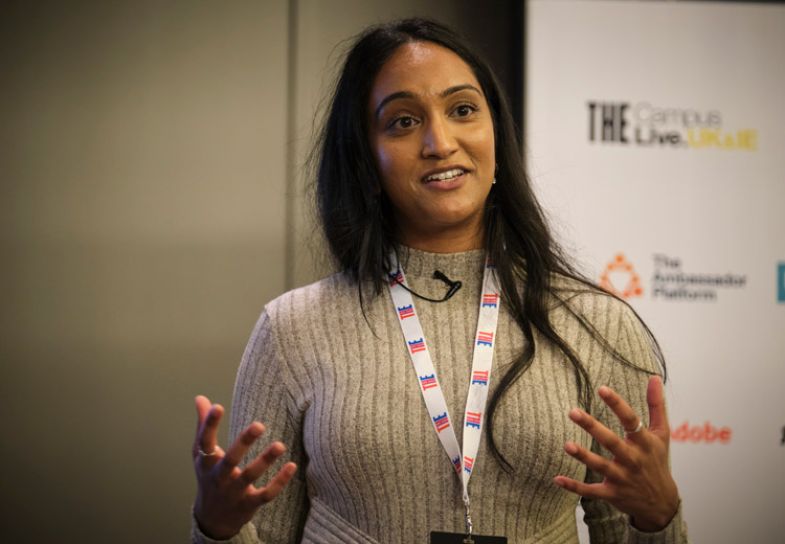
Digital ambassador programmes can be mutually beneficial for current and prospective students, delivering a more personal student journey and fostering workplace skills
Digital ambassador programmes have enabled institutions to reach more prospective students, provide a personalised experience and foster skills that will prove essential in the workplace.
At a THE Campus Live UK&IE discussion, held in partnership with The Ambassador Platform, Thamasha De Silva, head of customer success, and Nik Higgins, co-founder and chief growth officer at the company, discussed how institutions can incorporate digital ambassadors within their marketing and recruitment strategies.
“We’ve come up with a four-stage process of building a digital ambassador programme: planning, recruitment, management and incentivising,” Higgins said. “A programme like this can have huge impact when implemented correctly.” The Ambassador Platform's recent whitepaper provides guidance on each stage of this process.
In terms of planning, institutions need to come up with a solid initial strategy to ensure they are able to tackle any issues further down the line. “You need to consider many things,” De Silva explained. “Questions that prospective ambassadors often ask include what online activities will they be part of, what are your expectations of them, and what skills are you looking for. Carefully consider exactly what you are trying to accomplish.”
Moving on to the recruitment phase, universities should put together a clear job description. “List your expectations so when students apply for this role they are committing to those expectations,” De Silva said. “The benefits of the role should also be clear. Students have come to university for benefits like these that reside outside their degree programme. Think about impact and the opportunity that ambassadors have to positively influence thousands of students around the world.”
“The management of your ambassador programme starts with training,” De Silva said. “Safeguarding will be of the utmost importance, but tone of voice will also be relevant here. Regular meetings are a great idea and give institutions and ambassadors a chance to share plans and actively work together on content creation.”
The final stage of an effective student ambassador programme revolves around incentivising ambassadors. “Skills and work experience will be gained from your ambassador programme, so highlight them,” De Silva said. “Payment is also something you might want to consider. Most digital ambassadors aren’t motivated by pay, but offering a fair wage is the right thing to do even when budgets are tight. Mentorship opportunities, competitions and generally celebrating good work are other ways of incentivising your ambassadors.”
“In a sector that is increasingly focused on outcomes, a digital ambassador programme provides students with skills,” Higgins said. “It has demonstrable impact, it speaks to your institution’s openness, and it’s an initiative where everybody wins.”
The panel:
- Thamasha De Silva, head of customer success, The Ambassador Platform
- Nik Higgins, co-founder and chief growth officer, The Ambassador Platform
Read TAP's whitepaper here.
Find out more about TAP.

